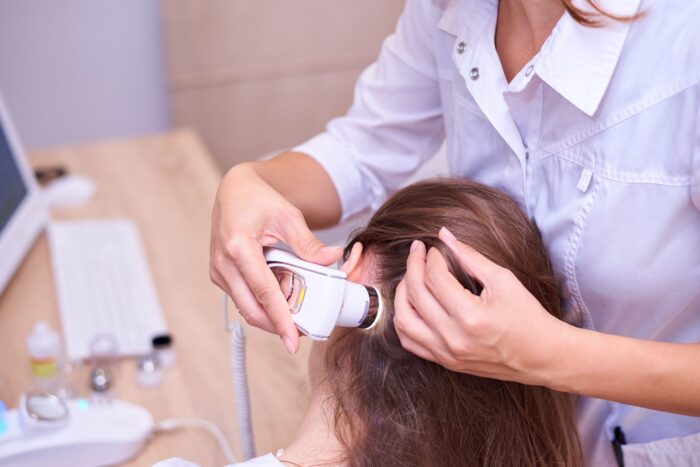It may seem counterintuitive at first to ask for hair care tips from a dermatologist, but these medical doctors are experts at all things skin-related, and that includes the scalp. The health of a person’s scalp has a direct impact on the health of their hair. Taking the advice of dermatologists regarding scalp health is one of the best ways to maintain beautiful, lustrous hair without wasting money on products that cost a fortune but provide little benefit.
Before rushing to the store to try out the newest haircare fad, take the time to get to know the underlying mechanisms for why products may or may not work. Start by checking out the hair care tips below from top rated MD, Dr. Sarah Groff.
Know When to Wash Hair
It’s very important to keep hair clean, but not everyone should be washing it every day. That may be an appropriate solution for people with excessively oily skin, which typically translates to an oily scalp and oily hair. However, people with dry skin or chemically treated hair shouldn’t be washing it every day.
The best rule of thumb for someone to tell if they are washing their hair often enough is whether they notice flakes. Flakes of dandruff can escalate into other scalp problems, and they generally indicate that the person isn’t shampooing often enough.
Know How to Apply Products
Shampoos are designed primarily to cleanse the scalp, so that’s where people should focus their efforts in the shower. Some shampoos can even strip the hair’s natural oil, leaving people with dry hair and split ends. This latter issue can be improved by switching to a hydrating shampoo, but that doesn’t change the fact that shampoo needs to be massaged into the scalp to effectively protect the person’s hair.
The opposite rule applies to conditioners. Conditioner is meant to help protect the ends of hair, preventing split ends and keeping even long hair looking beautiful. Focus on applying it to the tips of the hair. Applying too much conditioner to the rest of the head can leave fine hair, in particular, looking limp.
Choose the Right Hair Care Products
There are shampoo and conditioner formulations for every hair type for a reason. Each of them contains different ingredients that focus on maximizing the benefits to the user. People who color their hair should always use shampoos for color-treated hair, while those who are struggling with hair damage from overly harsh chemical treatments may want to consider a two-in-one shampoo. When choosing these products, pay attention to the ingredients, not the cost. More expensive shampoo and conditioner products aren’t always more effective.
Protect the Hair When Swimming
Chlorine can have dramatic negative impacts on people’s hair. To prevent those damaging effects, wet the hair first and apply conditioner, then wear a tight-fitting swim cap to hold everything in place. There are also shampoo and deep conditioning products designed specifically for people who swim in chlorinated pools. These products are designed to help replace lost moisture and restore hair health.
Be Careful About Brushing
Hairbrushes with rough, wiry bristles can contribute to breakage. The best hairbrushes for people with long hair and anyone who is concerned about preventing breakage is a rubber paddle brush. They feature smooth, synthetic bristles that will help to remove tangles without pulling on the hair.
Avoid Heat Whenever Possible
Heat can be incredibly damaging to hair. The tell-tale signs of heat damage are fairly obvious once they’ve occurred. People’s hair starts to develop split ends, a rough or stringy texture, white nodules at the ends of the hair shafts, and excessive tangles. Heat-damaged hair is also more likely to break and harder to style or brush out.
Prevention is the best cure when it comes to heat-damaged hair. While it’s not possible to avoid heat all the time, try to keep blow-drying and heat styling to a minimum, and apply heat protectants first to preserve cuticles and prevent dehydration.
Ask an Expert
Most hair problems can be addressed using the simple tips above. However, some of the signs of unhealthy hair could also indicate underlying skin problems on the scalp. It’s best to ask a dermatologist when people start noticing things like losing large amounts of hair, excessive dandruff, scalp itchiness, or other concerning symptoms.





























